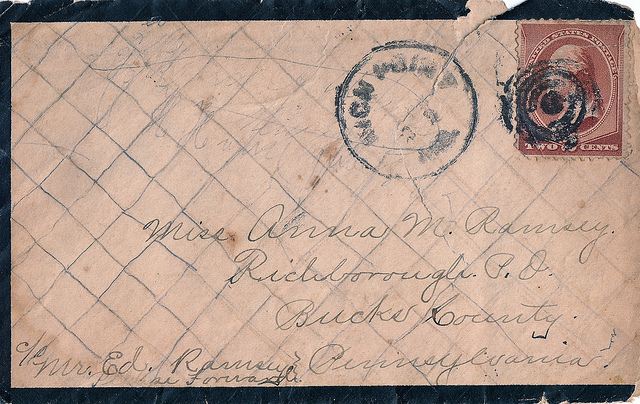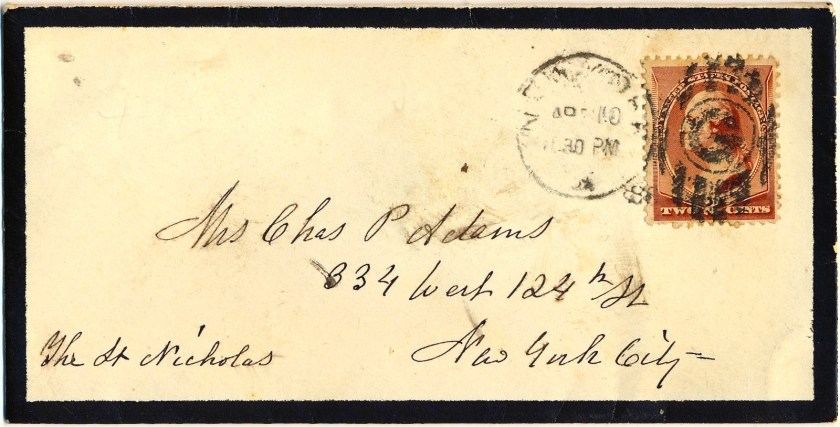
Myersville, July 10th, 1852
Dear Emeline,
I hope you will not think hard of me for thus approaching you so unexpectedly, as my mind has bin [sic] for some time a good deal taken up with you in regard to coming to see you in order to have some private conversations with you, not knowing at all whether my company would be agreeable or not, but take this plan of ascertaining something about the state of your mind.
Dear Emma, you are well acquainted with me and know all about my situation. You know that I have bin unfortunate in the loss of a very dear and kind companion, one in who my whole soul delighted to honor and respect. But she has gone I trust from a world of trouble and sorrow to one of happiness and joy, and I can have no more comfort nor consolation from her anymore, only with a firm hope and expectation of meeting her again in those blissful regions where parting shall be no more. I can do no more than to respect her memory, which I will ever do.
We read in the Bible that it is not good for man to be alone. I have realized that to be a very true saying indeed. I was once as happy as any person could be in the enjoyment in the company of my much-lamented Mary, but how different my case. With all I have I have no enjoyment & some of my best friends have told me that I need not expect to be happy anymore unless I would marry again and have advised me to do so, although I do not wish to do so for some time yet. But I have come to the conclusion to do so providing I can suit myself. I now feel like a lost sheep, lonely and without anyone to cheer me or comfort me, and if it was not for the comforts and the consolations of religion, I would often times have to despair in sorrow. But thanks be to God that he still comforts and consoles me. I find that I can never be happy again in this world without fixing my affection on one again in who I am satisfied will be a kind companion to me, and dear Emeline, you appear to the only one I can have any idea of going to see at the present and of fixing my affection upon.




